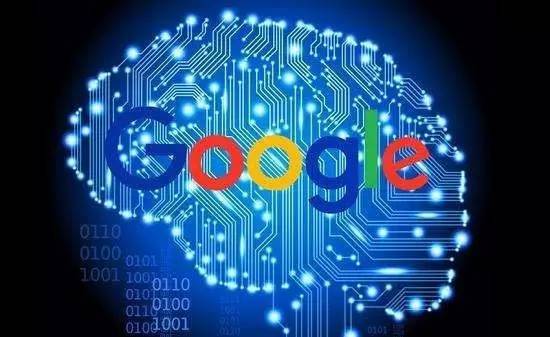

Why am I pouring cold water on Google's artificial intelligence?
Editor's note: The author of this article is Soma Tech, who interprets the Internet world from a unique perspective.WeChat public account: techsuoma;36Kr is released with authorization.
When I wake up, the whole world is saying good things about Google.
In the early hours of yesterday morning, during the day in the Western United States time, Google held its annual Google I/O conference at its headquarters in Mountain View. The I/O conference continued Google's consistent style: open-air square, steel tripods and huge projection boards, crowded crowds and various geek products, as well as highly innovative and technological new products, making the entire conference more like is a carnival of techno music and art, a Google version of Woodstock and SXSW.
Just as almost all large companies have a fixed conference to showcase their latest technologies and new products, Apple has WWDC, Facebook has the F8 conference, Microsoft has the Build developer conference, and Google also has the I/O conference. Among the domestic BATs, Baidu has the World Conference, Tencent has the WE Conference, and Alibaba also has the Yunqi Conference. Annual conferences have become standard. In fact, on the one hand, the conference is to showcase the company's new products and concepts to the outside world, and it is a proactive PR behavior. For example, at last year's Yunqi Conference, Jack Ma proposed the concept of new retail, and Baidu grandly introduced its achievements in the field of artificial intelligence. . On the other hand, the conference is also regarded as the vane of a company's strategy. You can clearly see what the company's focus and direction will be in the coming year.
For example, at this year's I/O conference, we can clearly see that Google's focus has changed from mobile first last year to artificial intelligence first this year. The content of the entire conference is all centered around artificial intelligence and machine learning. Its search and map businesses have incorporated Google's latest machine learning technology, and its Gmail has also added the function of smart reply. It can be said that Google has officially promoted artificial intelligence as a key business this year and in the future.
Let’s first briefly review and sort out the content released by Google:
Cloud TPU: Maybe everyone is not familiar with TPU, but it has been two years since Google launched it. It supports the powerful and fast computing power of AlphaGo. The second-generation product launched yesterday is specially launched for AI computing services. high-performance processor.
Google lens camera: It is said to be a camera, but it is actually more like a scanner. For example, it can identify the varieties and types of flowers on the roadside, and can identify OCR and restaurant information, such as menus, closing times, etc.
Google Assistant: The voice assistant launched last year can not only chat with Google Assistant through text this year, but also join the iOS camp. Considering that Apple already has Siri, this is obviously a new step.
And Google Home launched last year: Now Google Home has more functions. In addition to making calls, it can also check flight information, schedule and other reminder functions. To a certain extent, it is more like a home butler.
It doesn’t seem like there’s anything special about it, but to be honest, Google’s approach of popularizing it from the underlying infrastructure, that is, through system + machine learning + speech recognition, is more effective and thorough than pure technological innovation. To give a simple example, for example, in image management, Google can directly classify and recognize the portraits in the photos to remind you whether to share them on social platforms and tag your friends. This is much better than just taking a selfie of two people and then photoshopping it. Posting on Moments should be more popular among users. It can even recommend corresponding restaurants or routes based on your input habits, location and hobbies.
But don’t rush to cheer that the era of artificial intelligence has arrived. Let me give you some cold water first. In my opinion, Google's artificial intelligence is still far away from us. Google's artificial intelligence at least still faces entry barriers, acclimatization and user habits. Google's I/O conference can only say "it looks beautiful" .
Google’s AI: So close, so far
First of all, Google's Android system integrates a complete set of Google services, which we call native. However, due to various reasons, the Google service framework, that is, the GMS suite, has not been implanted in domestic Android phones in China. However, a series of Google services, whether it is Google Photo, Allo, Google Translate, or Google Map, It is based on this suite, which means that these Google services have no ground in China.
This leads to a series of problems. For example, at Google's I/O conference, CEO Pichai announced a very thoughtful feature: Google Photos has launched a suggestion sharing feature that can automatically identify faces in photos and find the corresponding ones. Friends, for example, today we went to Happy Valley together and took a lot of photos. Google Photo can automatically recognize the faces in the photos, find the corresponding friend, and then ask you, "Would you like to share it with him?"
This feature looks great, but is very unrealistic for Chinese users. First of all, the vast majority of users cannot use Google Photo. Even if they log in with great effort, this function cannot be used because compared to your WeChat friends, your Google friends are too Without it, the relationship chain is too weak, and even the most basic interaction such as mutual poke (a function in Facebook) cannot be played, so it will eventually become a niche tool for domestic niche groups.
Let’s talk about the Google Assistant that Google grandly introduced this time. Essentially, Google Assistant is a replacement for Google Now. As for why Google uses Google Assistant to replace Google Now, the official reason is that Google now cannot accurately describe the needs of users, but the real reason should be that the function of Google Now is still very single. , many times just display the needs through search results, which is essentially the same as using a browser to search for web pages.
Forbes’ comment is even more to the point:
When Google Now doesn't understand the user's dialect, or when Siri can only provide a string of search results that require you to pick up the phone and take a closer look, you know that using this voice search and other similar concepts is not a perfect experience.
Therefore, this forced Google to abandon Google Now and instead develop the next generation product, namely Google Assistant. Its biggest feature is that it can mobilize its services in a more diverse way. In other words, while Google Assistant integrates voice capabilities, it also deeply integrates the image processing capabilities of Google Lens, which makes it more powerful than ordinary voice assistants.
But unfortunately, you still can't use it.
Let’s put it this way, Google Assistant first appeared as a built-in feature of Google’s chat software Allo. This logic is not difficult to understand: Google Assistant itself interacts with users through text and voice, so it is normal to embed it into chat software. However, with so many artificial intelligence chat software on the market, how can it be so easy to be competitive?
Therefore, Google has adjusted its strategy and bound Google Assistant to Pixel phones, and recently announced that it supports Android phones that support 6.0 and 7.0 or above. However, even so, Google Assistant can only be used on a few native system models. Even It was announced that Google Assistant supports ISO, but it is only in the United States and China, and is not on the list.
So, just take a look.
It’s also very difficult to land
Some readers may say that all this is due to certain reasons, but in fact I want to say that even if there are no entry barriers, Google's artificial intelligence implementation still has big problems.
So far, all speech recognition, whether it is Amazon Echo, Google Assistant, Allo, or Apple SiriI, BM Watson and Microsoft Cortana, if we browse them all, we will find that these artificial intelligence voice products are Mainly in English. Let’s take Google Home, the smart home product that Google pushed yesterday as an example. This is a very cool product, somewhat similar to Amazon’s Echo, but it supports more diverse and powerful products and services. For example, you can open YouTube, use Spotify or Pandora, etc., but it currently only supports English. You must know that this product has not been banned, it is just not included in the list of regions for sale. You can still buy it on third-party platforms such as Taobao and JD.com.
But what are the sales of this product? We arranged them in order of sales priority. The highest sales volume was 31 units. Haha, you said that Google's artificial intelligence is about to explode? Only ghosts believe it.
Obviously, Google is not proficient in Chinese. In terms of speech recognition, due to the vast and profound Chinese language, as well as the differences in dialects, colloquialisms, and tones in various places, it is difficult for Google Home to accurately identify the user's needs. In particular, Google Assistant has upgraded its functions to a wider range of needs, not just basic needs such as setting an alarm clock and sending a text message. Therefore, when facing higher demands, for example, if I want to watch the behind-the-scenes interview of "3 Idiots in Hollywood" on YouTube, errors will inevitably occur.
Baidu, the domestic artificial intelligence giant, cannot guarantee the correct identification of 100%, let alone a foreign monk?
Even if this hurdle is overcome, how to open services is still a big problem.
You know, a big reason why Echo and Google Home are awesome is that they are built on a variety of third-party services. If your voice assistant only supports setting alarm clocks and checking web pages, it is basically useless. Let’s do this Take a look at Google’s AI third-party services:
TV and audio apps include:
Google Play MusicYouTubeYouTube MusicSpotifyPandoraTuneIn
Smart home apps include:
Google ChromecastNest ThermostatsPhillips HueSamsung SmartThingsIF by IFTTT
Task-related apps include:
Google CalendarGoogle Keep
Okay, tell me, how many of these apps do you know? How many have you used?
at last
I don’t mean to badmouth Google’s artificial intelligence. In fact, as the world’s largest Internet giant, I have always liked Google’s products, but Google’s artificial intelligence still has a long way to go. In fact, many of Google's products, whether they are previous mobile products, such as Google+, Allo, or the current smart home, cannot be regarded as precedents at home and abroad, and they also face fierce competition from their peers. Take smart homes as an example. Amazon's echo has sold millions of units, occupying more than 70% of the market, while Google Home's proportion is only more than 20%. Even with the blessing of artificial intelligence, there is still a long way to go.
My judgment is that at least in 3 to 5 years, Google's artificial intelligence is still far away from us, so I think those geeks who praise "Google" still need to think calmly while singing praises. status quo.
The Science and Technology Soma Reader Group is now open. To join the group, please add the administrator’s WeChat ID: guanyingjia7;


